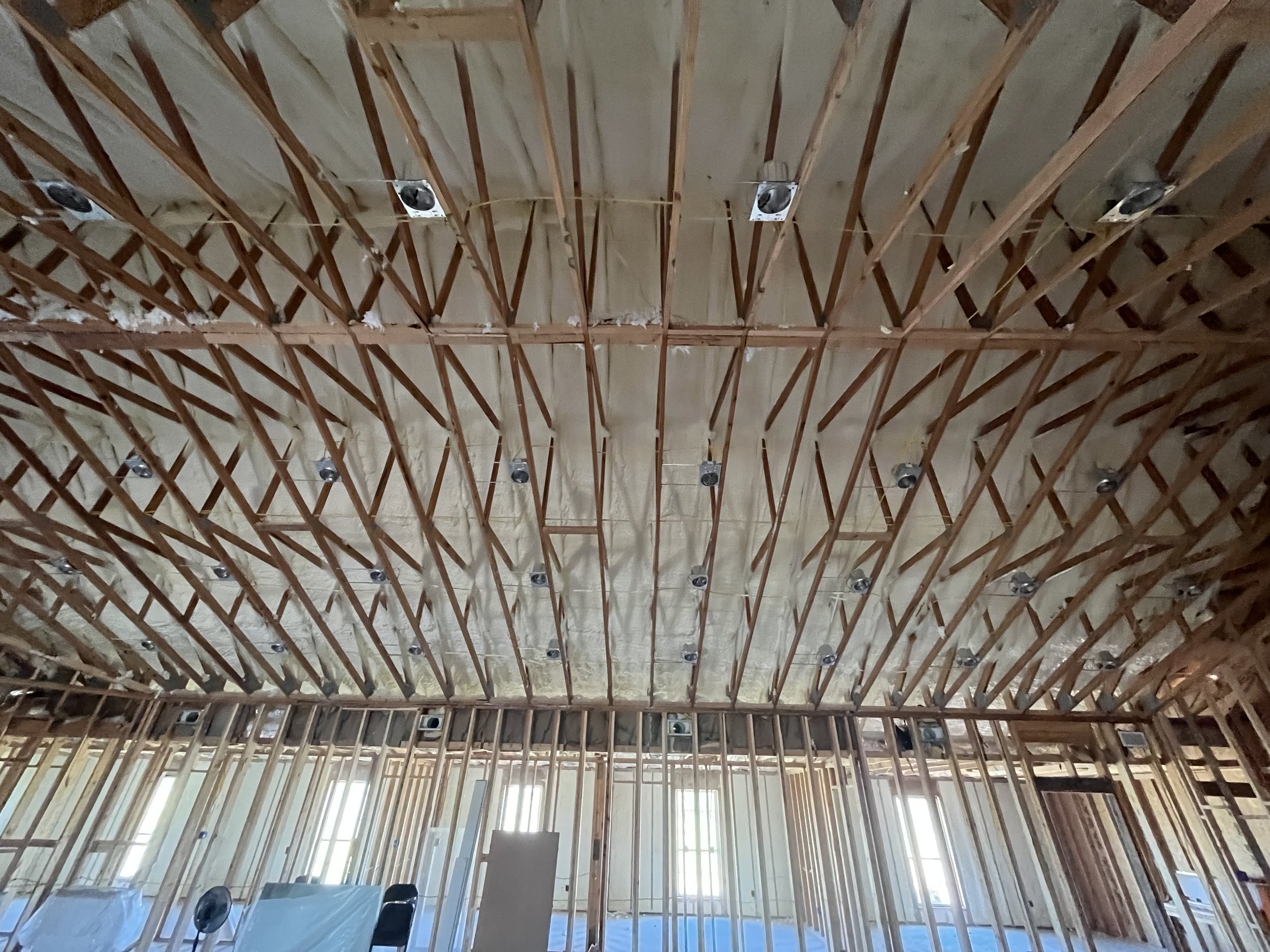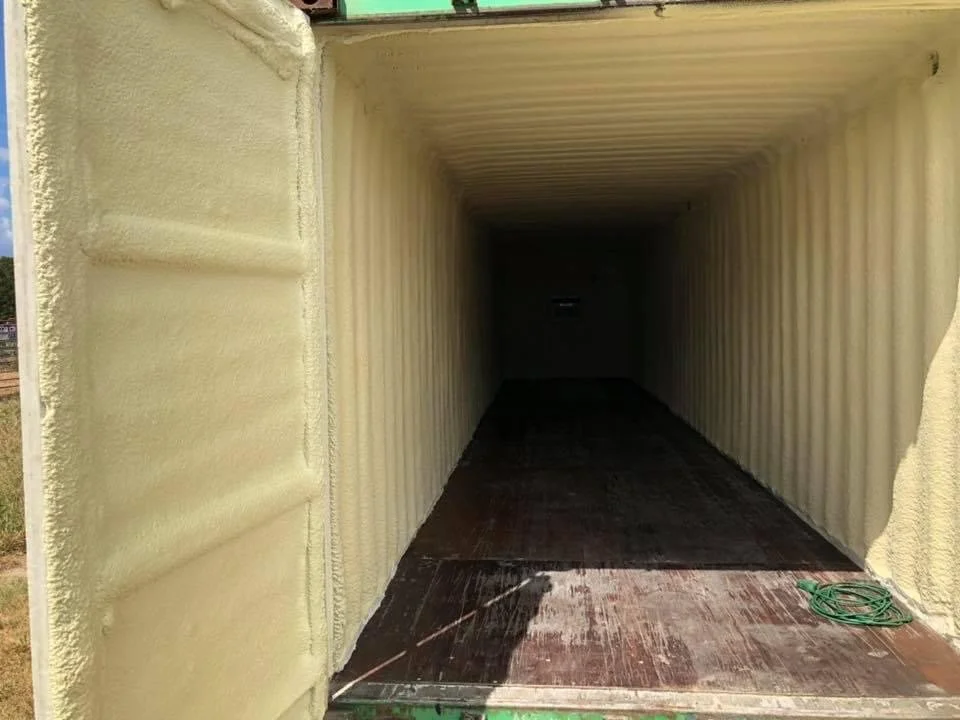
Our Services
What we offer
Open Cell Spray Foam
Typical applications include
• Residential above grade –rooflines, attics, walls, soundproofing
R-Value 4.0 per inch
Complete air barrier at 3.5 thick
Not a moisture vapor barrier
Expands and contracts with building.
Water passes though it, making it easy to detect leaks in the roof line.
Lightweight foam (Sponge)
Excellent noise reduction, up to twice as effective as
Closed Cell
• Provides economic yield and is about half the price of Closed Cell
Insulation ranges from .05 to 1.6 lb. in density
Fragile and easily damaged. Should only be installed in places where it can be covered or left undisturbed.
Closed Cell Spray Foam
Typical applications include
Commercial, Industrial, Metal Buildings, Roofing, Pole Barns, Crawl Spaces, Basements, Subfloors
R-Value of 7.0 per inch
Complete air barrier at 1" thick
Moisture vapor barrier at 1.8" thick
Increases wall strength - adds to structural integrity of building; up to 200-300X
High density foam (Rigid)
Only FEMA approved flood zone insulation
Insulation ranges from 1.7 to 3.0 Ibs. in density
Is very durable, can be left exposed without the risk of damage
Hybrid Spray Foam
Combines benefits of both products at a medium price point.
Typical applications include
Residential,Barndominiums,Apartment Complex, Warehouse, Commercial Buildings, Tiny Homes.
AirBarrier
MoistureVaporBarrier
IncreasedRigidity
Excellentnoisereduction
Economic Yield
Blow-In Fiberglass Insulation
Blow-in Fiberglass is a cheap and effective way to insulate or re-insulate your home!
Spray Foam Roofing Systems
Thermal Resistance (R-Value):
Spray foam roofing insulation has the highest R-value among conventional roofing materials.
R-value measures a material's ability to resist heat flow.
Roofing-grade SPF has an approximate R-value of 6.5 per inch.
SPF provides superior insulation qualities beyond its R-value.
Strength & Durability:
Spray foam systems create a strong and lightweight protective membrane for commercial roofs.
A thickness of 1 inch or greater enhances a building's structural integrity.
Longevity:
Properly installed and maintained SPF roofing systems can last 30 to 40 years or longer.
Recoating every 10 to 15 years prevents degradation from UV radiation.
Seamless & Self-Flashing:
Spray foam roofs are seamless and self-flashing, unlike conventional systems.
SPF conforms and adheres to irregular shapes and surfaces, preventing water entry.
Ease of Maintenance:
SPF roofing systems are easy to maintain.
Minor damage can be repaired with roofing-grade mastic or sealant.
Severe damage requires extensive repairs to ensure watertightness.
Quick Installation:
SPF systems can be installed quickly, causing minimal disruption to building occupants.
They are applied directly to roof substrates, often without removing existing roofing material.
Renewable & Sustainable:
SPF roofing systems can be recoated multiple times, generating little to no waste.
This reduces landfill waste and the costs of roof tear-off and replacement.
The materials used in spray foam roofing systems are environmentally friendly.
“If not us, who? If not now, when?”
— John F. Kennedy
